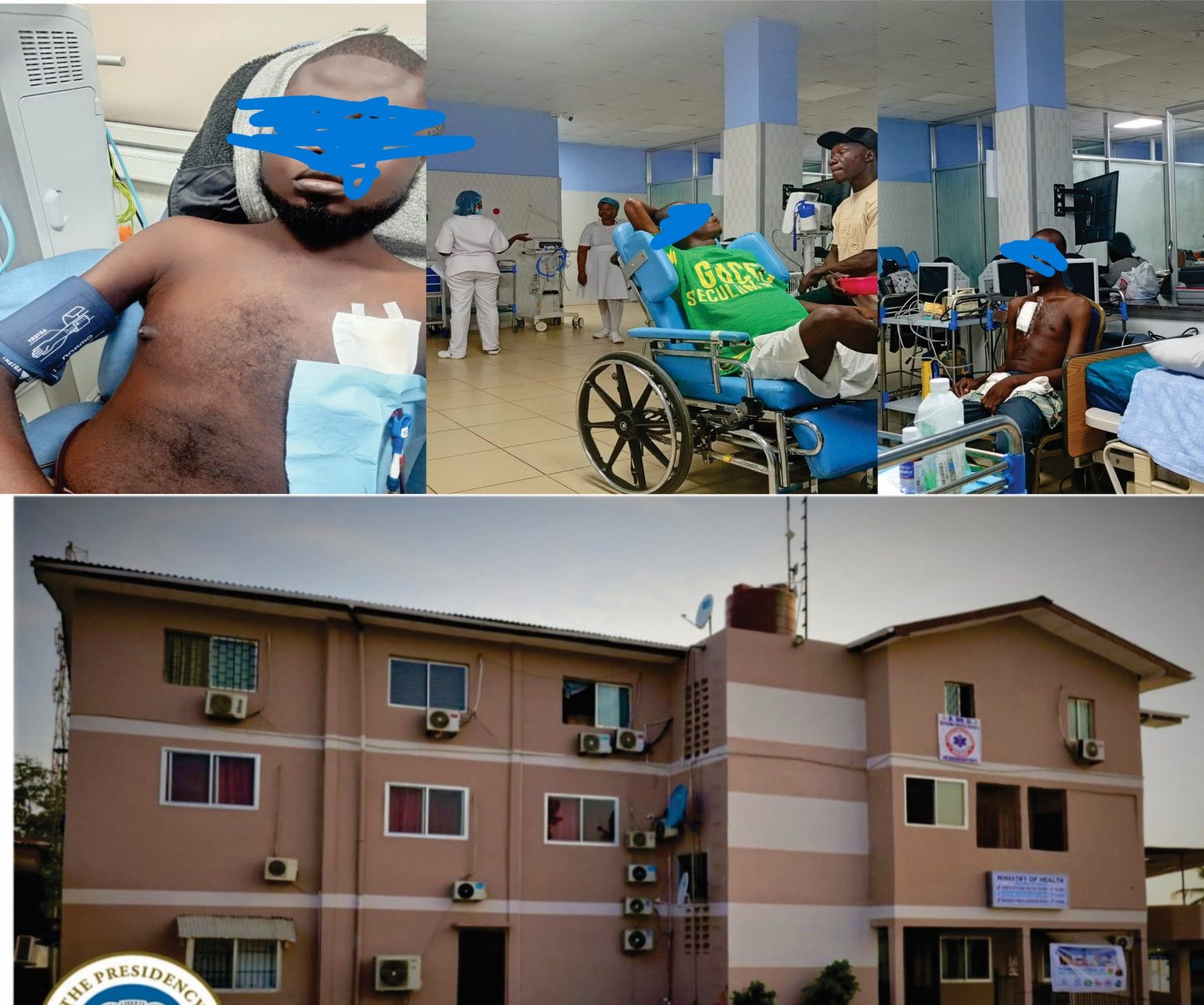The John F. Kennedy Medical Center (JFK), Liberia’s largest referral hospital, is facing severe criticism and is being labeled a “death trap” by patients due to chronic shortages of essential medical supplies, equipment failures, and alleged negligence. Patients describe agonizing delays in treatment, exorbitant costs, and a pervasive sense of despair within the hospital’s walls. Bill Mensah, a dialysis patient, highlights the dire situation, stating that his survival rests solely on divine intervention, as the hospital offers little hope. He details the financial burden of treatment, costing over $250 weekly, yet still faces frequent denials due to supply shortages. The lack of essential resources, coupled with the apparent mismanagement of funds, leaves patients questioning the hospital’s commitment to their well-being.
The dialysis unit, inaugurated in 2022 with the promise of life-saving treatment, has become a source of immense suffering. Patients like Precious, a mother at the dialysis center, express fears for their children’s survival due to the persistent lack of treatment and deteriorating conditions. Surprise Cuput, another dialysis patient, recounts a harrowing week without treatment, a life-threatening situation for someone with end-stage kidney disease. These stories underscore the systemic failures within the hospital, leaving vulnerable patients to face the grim reality of inadequate care and the constant fear of death. Borrowing money and soliciting donations become routine practices, only to be met with malfunctioning equipment or outright rejection due to supply shortages.
The hospital’s negligence and questionable healthcare practices have resulted in several tragic deaths, further fueling public outcry. The Tamba family filed a complaint against JFK for wrongful medication that allegedly led to the death of Lovette Tamba, a 32-year-old pregnant woman. This follows a previous lawsuit in 2023 for $1.5 million related to the alleged wrongful surgical operation on Karen Gaydou Sehkehporh, who also died at the hospital. These incidents highlight a pattern of alleged malpractice and negligence, raising serious concerns about the hospital’s commitment to patient safety and the quality of care provided.
The hospital’s administration has remained largely unresponsive to these mounting concerns. Attempts to contact hospital officials and senior management have been fruitless, further exacerbating public distrust and frustration. Josephine Seekey, the head of Public Affairs at JFK, acknowledged the constraints faced by the hospital, particularly the absence of reagents at the dialysis center. She cited the expensive and often delayed importation of medications and supplies. However, she failed to provide a clear explanation for how tests are being conducted without reagents, attributing her inability to answer to difficulties in reaching responsible personnel.
The situation at JFK reflects a broader crisis within Liberia’s healthcare system. Low budgetary allocations and the persistent lack of essential supplies contribute to a cycle of preventable deaths and suffering. This underfunding, coupled with apparent mismanagement within the hospital, creates an environment where patients are denied basic medical necessities, forcing them to bear an unbearable financial and emotional burden. The absence of accountability and the lack of transparency from the hospital’s administration further erode public trust and perpetuate the cycle of neglect.
The dire conditions at JFK necessitate urgent intervention. Increased government funding, improved resource management, and a commitment to transparency and accountability are crucial to transforming the hospital from a symbol of despair into a place of healing. Holding those responsible for negligence accountable is essential for restoring public trust and ensuring that patients receive the quality care they deserve. The stories of Bill Mensah, Precious, Surprise Cuput, and others serve as a stark reminder of the human cost of a failing healthcare system and underscore the urgent need for comprehensive reform and investment in Liberia’s healthcare infrastructure.


